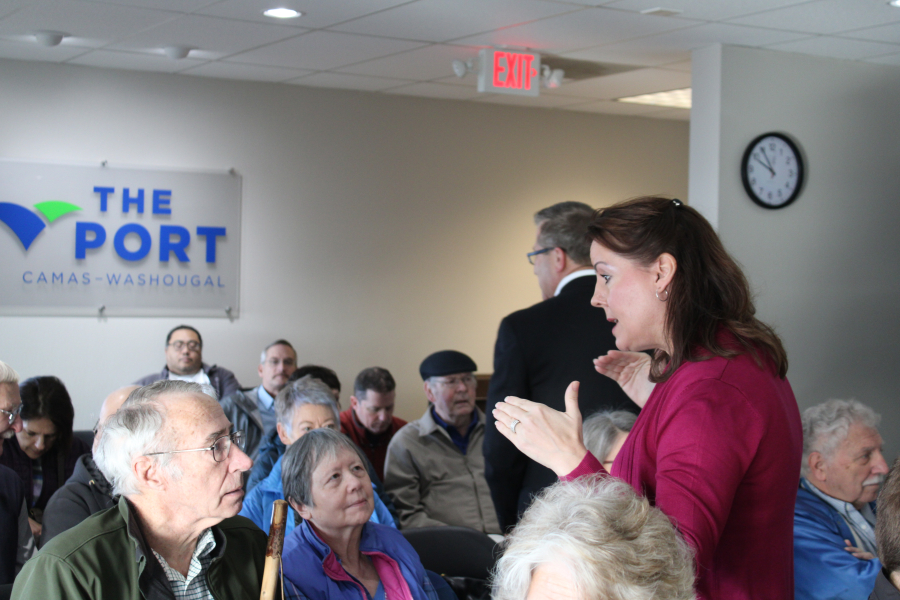A standing-room-only crowd greeted lawmakers from Washington’s 18th Legislative District at a Saturday morning town hall held inside the Port of Camas-Washougal’s headquarters.
State Sen. Ann Rivers, R-La Center, state Rep. Larry Hoff, R-Vancouver, and state Rep. Brandon Vick, R-Vancouver, shared their views on everything from electric vehicles, low-carbon fuel standards and growth management to gun control and vaccine mandates at the two-hour Jan. 4 event.
Several Camas-Washougal elected officials, including both mayors, three city council members and representatives from the Port and East County Fire and Rescue attended the mostly polite town hall. The day’s only true disruption occurred toward the end of the event, when a man in the front row shouted at the legislators, calling them liars and saying the answers they were giving were the same answers they’d been giving for years, then turning to the crowd and demanding to know why people didn’t want to pay taxes and fund services that would benefit future generations before saying he was out of control and going to leave.
Later, Hoff said he appreciated the man sharing his opinions, but thought people should express their opinions in a way that led to conversation instead of disruption.
Following are some of the topics constituents asked the lawmakers to address at the Saturday town hall:




